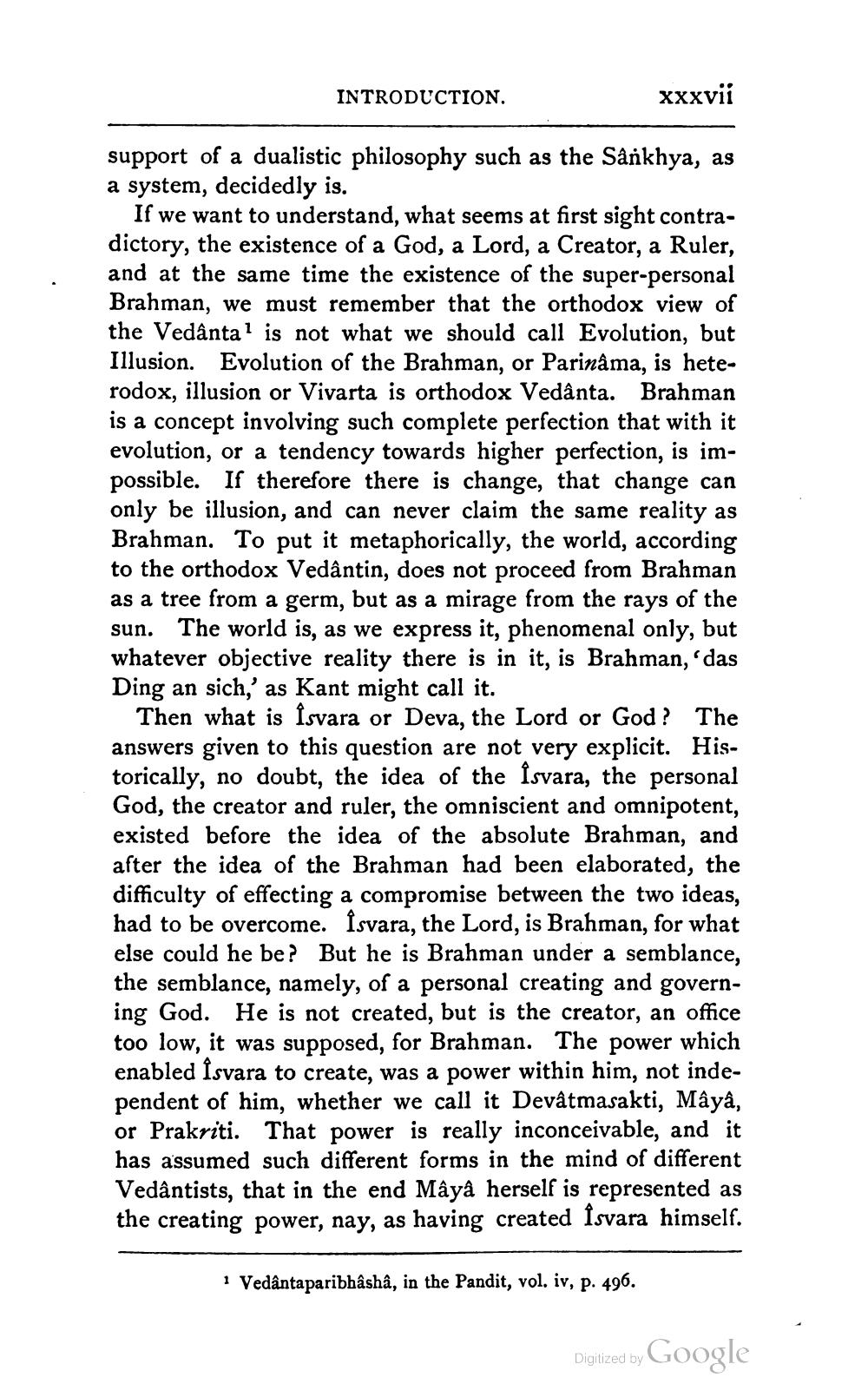________________
INTRODUCTION.
xxxvii
support of a dualistic philosophy such as the Sankhya, as a system, decidedly is.
If we want to understand, what seems at first sight contradictory, the existence of a God, a Lord, a Creator, a Ruler, and at the same time the existence of the super-personal Brahman, we must remember that the orthodox view of the Vedântal is not what we should call Evolution, but Illusion. Evolution of the Brahman, or Parinama, is heterodox, illusion or Vivarta is orthodox Vedânta. Brahman is a concept involving such complete perfection that with it evolution, or a tendency towards higher perfection, is impossible. If therefore there is change, that change can only be illusion, and can never claim the same reality as Brahman. To put it metaphorically, the world, according to the orthodox Vedântin, does not proceed from Brahman as a tree from a germ, but as a mirage from the rays of the sun. The world is, as we express it, phenomenal only, but whatever objective reality there is in it, is Brahman, das Ding an sich,' as Kant might call it.
Then what is Isvara or Deva, the Lord or God? The answers given to this question are not very explicit. Historically, no doubt, the idea of the Isvara, the personal God, the creator and ruler, the omniscient and omnipotent, existed before the idea of the absolute Brahman, and after the idea of the Brahman had been elaborated, the difficulty of effecting a compromise between the two ideas, had to be overcome. Isvara, the Lord, is Brahman, for what else could he be? But he is Brahman under a semblance, the semblance, namely, of a personal creating and governing God. He is not created, but is the creator, an office too low, it was supposed, for Brahman. The power which enabled Isvara to create, was a power within him, not independent of him, whether we call it Devâtmasakti, Mâyâ, or Prakriti. That power is really inconceivable, and it has assumed such different forms in the mind of different Vedântists, that in the end Mâyâ herself is represented as the creating power, nay, as having created Isvara himself.
· Vedântaparibhâshâ, in the Pandit, vol. iv, p. 496.
Digitized by
Digitized by Google




